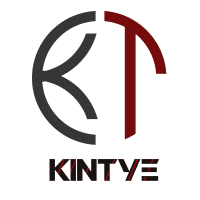
An effective marketing strategy is pivotal for any organisation striving to attain its business objectives and establish a distinct brand presence. This complex process, commonly referred to as marketing planning, involves a series of strategic steps to analyse market dynamics, identify opportunities, and formulate targeted approaches to accomplish predefined goals.
Whether you’re a seasoned business owner or an aspiring marketer, an excellent marketing strategy plan is essential for navigating the competitive landscape successfully.
What is Marketing Strategy?
At its core, strategic marketing is a systematic process that facilitates the delineation of objectives and the creation of comprehensive strategies and tactics to realise those objectives. This multifaceted approach encompasses several crucial elements that collectively contribute to the development and execution of an impactful marketing campaign.
Key Marketing Strategies:
1. Situational Analysis:
– Undertaking a thorough examination of the current market scenario, available information, and potential opportunities is the foundational step in marketing Strategy.
– Identifying market trends, competitor strategies, and consumer behaviour aids in formulating a strategy that aligns with the prevailing dynamics.
2. Forecasting and Planning:
– Projecting future trends and developments is a critical aspect of marketing Strategy.
– Creating a roadmap for the future enables organisations to anticipate challenges and opportunities, fostering preparedness and adaptability.
3. Target Market Selection:
– Carefully choosing the target market is pivotal for a successful market strategy.
– Understanding the demographics, psychographics, and behaviours of the intended audience helps tailor marketing efforts more effectively.
4. Defining Marketing Objectives:
– Clearly outlining specific, measurable, achievable, relevant, and time-bound (SMART) objectives is essential for gauging the success of marketing endeavours.
– Objectives serve as guiding beacons, ensuring that efforts are aligned with overarching business goals.
5. Strategy Design and Development:
– Crafting a robust market strategy involves deciding on the optimal mix of marketing elements, such as product positioning, pricing strategy, distribution channels, and promotional activities.
6. Resource Disbursement:
– Allocating resources judiciously is vital to ensure that the devised strategies can be executed effectively.
– Resources may include financial investments, human capital, technological infrastructure, and time.
Adapting Marketing Planning to Different Business Phases:
Marketing Strategy is a flexible process that can be tailored to accommodate various organisational scenarios. Whether a company is in the launch phase, undergoing a repositioning, or fine-tuning its existing strategies, the emphasis on certain phases may vary.
– Launch Phase:
– Companies entering the market need to focus on developing a robust go-to-market strategy.
– Initial visibility and brand establishment are critical during this phase.
– Repositioning or Rebranding:
– A company undergoing repositioning or rebranding requires a more intricate strategy to enhance the visibility of the new brand.
– The emphasis is on realigning the brand image with the evolving market dynamics.

2 Types of Campaign Planning
Strategic marketing is further categorised into two main types:
1. Long-Term Campaign Planning:
– Encompassing periods extending beyond a year, long-term strategic marketing falls under the purview of top management.
– This type of planning sets the stage for future objectives and strategies and provides a framework for the creation of short-term plans.
2. Short-Term Campaign Planning:
– Involving plans for periods shorter than a year, typically bi-annual or annual, short-term strategic marketing is overseen by mid-management.
– These plans are instrumental in addressing immediate and recurring issues within the organisation.
While many companies renew their marketing plans annually, assessing the performance of the plan throughout the year is crucial. Regular evaluations enable organisations to adapt to evolving market conditions, consumer preferences, and unforeseen challenges, ensuring the agility needed for sustained success.

How to Create a Marketing Strategy?
Effective strategic marketing is not a one-size-fits-all solution but a dynamic and adaptable approach that aligns with the unique characteristics and goals of an organisation. By understanding the intricacies of strategic marketing and tailoring strategies to specific business phases, companies can navigate the complexities of the market landscape and establish a resilient and impactful brand presence.
Embarking on a successful marketing journey involves a systematic approach known as the Marketing Strategy process. This process is divided into two key phases, each playing a vital role in shaping and executing effective marketing strategies. Let’s delve into the steps of this comprehensive strategic marketing plan:
1. Understand the Current Business Situation:
– The foundation of marketing strategy lies in comprehending the company’s business goals and the prevailing business environment. Conduct a thorough analysis of various markets and audiences, delve into client research to understand their decision-making processes, and evaluate your brand’s standing.
2. Understand Your Target Client:
– Knowing your target client is paramount. Understand their mindset, priorities, and decision-making criteria. Positioning your brand according to their preferences enhances the likelihood of being chosen. Research how your clients seek information about products or services to tailor your communication effectively.
3. Position Your Brand:
– A successful brand positioning captures attention and showcases your competitive advantage. Identify genuine, provable, and relevant differentiators from your competition. Craft messages that resonate with your audience, recognising that different segments may prioritise distinct aspects of your brand.
4. Define and Refine Your Offer:
– It’s important to tailor your offerings to the changing needs of your clients. This involves analysing your current business situation, competition, and customer preferences. Stay agile and responsive to ensure your products or services align with market demands.
5. Choose Your Marketing Techniques:
– Understanding your target audience empowers you to select appropriate marketing channels. Utilise both online and offline techniques to maximise visibility. Tailor your content to different stages of the sales funnel, from attracting prospects to converting them into clients.
6. Adapt Your Tools and Skills:
– As your marketing techniques evolve, evaluate if new tools are necessary. This may include a website, marketing automation, social media platforms, or search engine optimisation. Upskill or seek professional assistance to align your capabilities with the chosen strategies. You can rely on our expert team of SEO optimisers in our in digital marketing Sydney.
7. Write Down Your Plan:
– Translate your strategic insights into a tangible plan with clear actions and timelines. Your marketing plan must include a detailed calendar of scheduled actions to be implemented over a specific period, along with a comprehensive budget outlining the costs associated with various tools and strategies. Allow flexibility in the budget to accommodate unforeseen contingencies.
A well-crafted marketing plan encapsulates essential elements such as your value proposition, target market insights, market positioning, advertising strategies, distribution channels, and budget allocation. Regularly evaluate your progress against the plan, making adjustments as needed to ensure continued alignment with business goals. This dynamic and iterative process forms the backbone of a successful digital advertising campaign, positioning your brand for sustained growth and visibility in the competitive landscape.
A Successful Marketing Strategy with Kintye
At Kintye, a trusted digital agency in Sydney, we take pride in offering a comprehensive suite of digital marketing services that redefine the landscape of Advertising Strategy. Our team is dedicated to crafting a successful market strategy tailored to your unique needs, using cutting-edge tools like our specialised marketing strategy template.
We believe in the power of data, and our marketing analytics examples showcase how insights can drive results. Elevate your brand with Kintye, and let us be the architects of your success.




